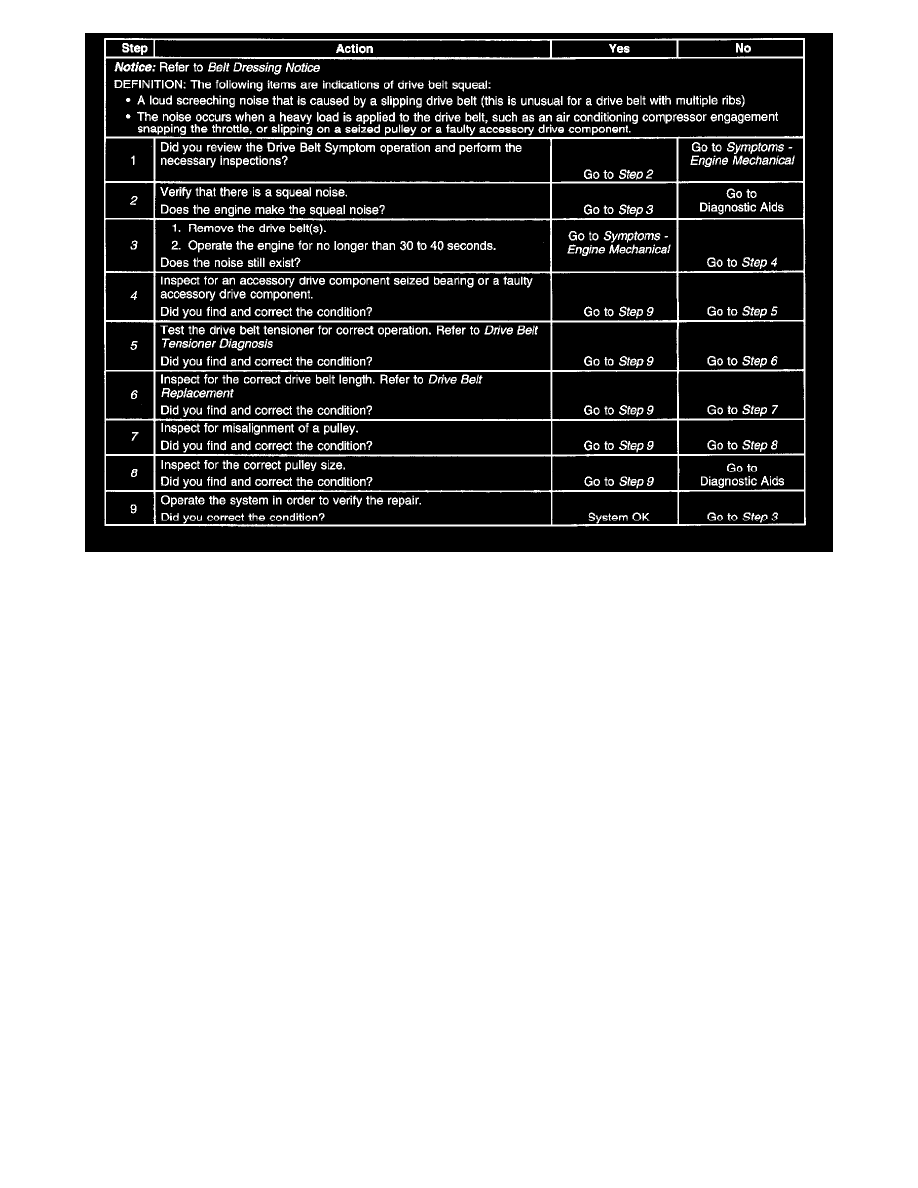Astro Van AWD V6-4.3L VIN X (2003)

Steps 1-9
Diagnostic Aids
A loose or incorrect installation of a body component, a suspension component, or other items of the vehicle may cause the squeal noise.
If the noise is intermittent verify the accessory drive components by varying their loads. Ensure the accessory components are operated to their
maximum capacity. An overcharged A/C system or power steering system with: a pinched hose, an incorrect fluid, or a failed generator are suggested
items to inspect.
Test Description
The numbers refer to the step numbers on the diagnostic table.
2. The noise may not be engine related. This step is to verify that the engine is making the noise. If the engine is not making the noise do not proceed
further with this table.
3. The noise may be an internal engine noise. Removing the drive belt and operating the engine verifies the noise is related to the drive belt or an
accessory drive component. If the drive belt is removed, the water pump may not operate. Without the water pump the engine may overheat. DTCs
may set when the engine is operating with the drive belt removed.
4. This test verifies that an accessory drive component does not have a seized bearing. Remove the belt and test the bearings for smooth turning in the
accessory drive components. Test the accessory drive components with the engine operating, vary the load on the components to verify that the
components operate correctly.
5. This test is to verify that the drive belt tensioner operates correctly. If the drive belt tensioner is not operating correctly, correct belt tension may
not be achieved to keep the drive belt from slipping which could cause a squeal noise.
6. This test is to verify that the drive belt(s) is not too long, which would prevent the drive belt tensioner from working correctly. Also if an incorrect
length drive belt was installed, it may not be routed correctly and may be turning an accessory drive component in the wrong direction.
7. Misalignment of the pulleys may be caused from incorrect mounting of the accessory drive component, incorrect installation of the accessory drive
component pulley, or the pulley bent inward or outward from a previous repair. Test for a pulley that is incorrectly aligned using a straight edge in
the pulley grooves across two or three pulleys. If an incorrectly aligned pulley is found refer to that accessory drive component for the correct
installation procedure for that pulley.
8. This test is to verify that the pulleys are the correct diameter or width. Using a known good vehicle compare the pulley sizes.
Drive Belt Vibration
Drive Belt Vibration Diagnosis
